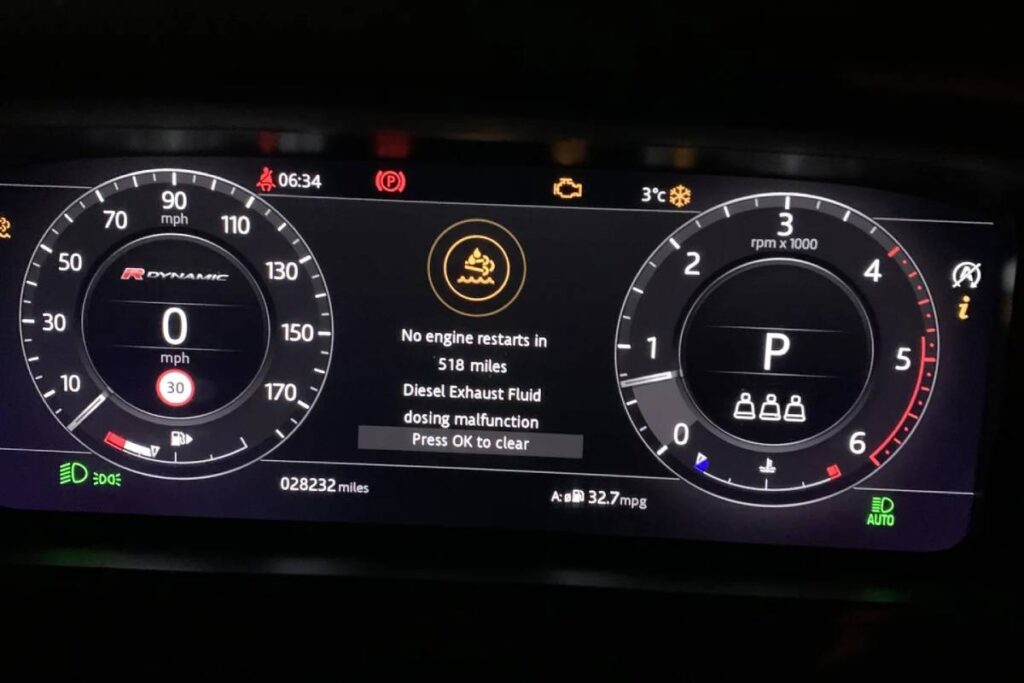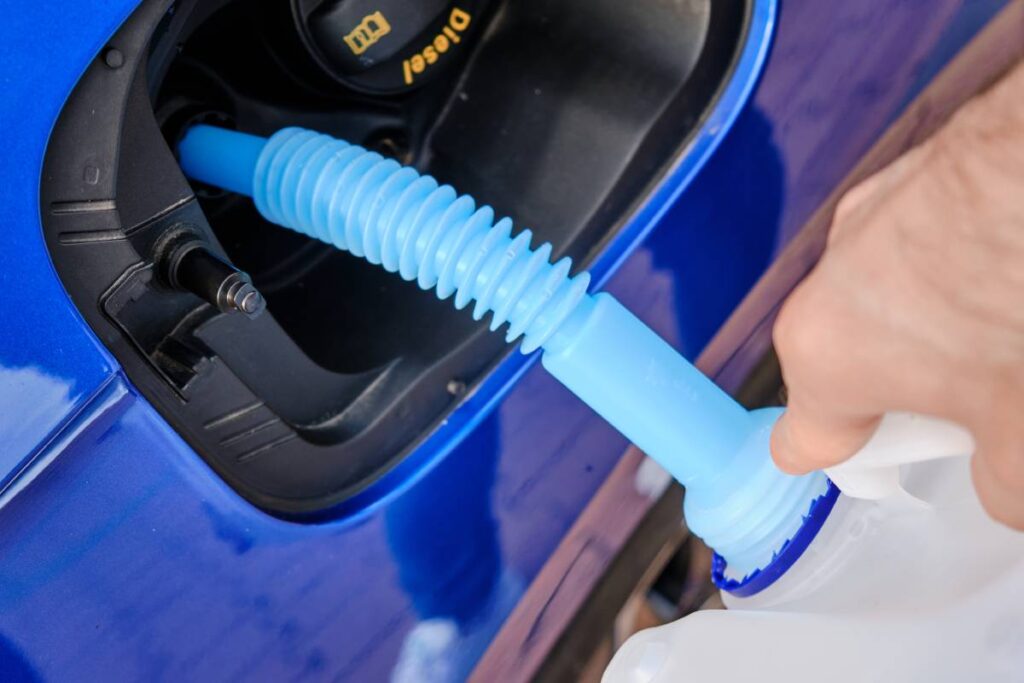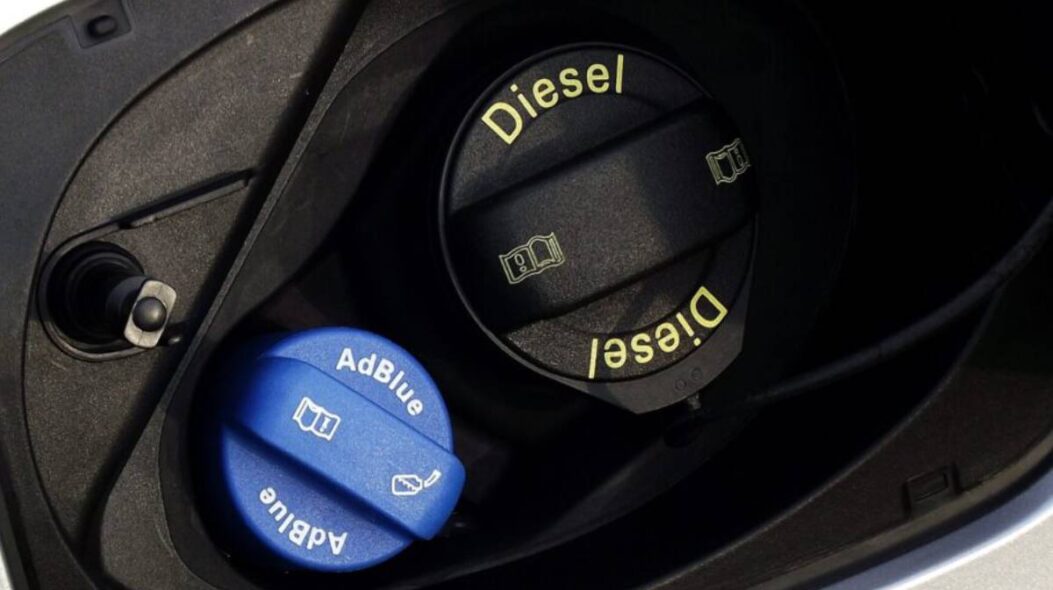AdBlue has become an essential component for modern diesel vehicles, particularly those equipped with Selective Catalytic Reduction (SCR) technology. It helps reduce harmful emissions, ensuring compliance with stringent environmental regulations.
However, many drivers and fleet operators are curious about how long AdBlue lasts and its costs in Australia. Here, we’ll break down these details, offering practical insights for AdBlue users.
- Practical Uses for Drawer Systems for Your 4×4
- What is the meaning of the word ramp? What are examples of ramps? What are the synonyms of the word ramp?
- Everything You’ll Need for a Camping Trip
What Is AdBlue and How Does It Work?
AdBlue is a high-purity solution of urea and deionized water. When injected into the exhaust system of a diesel engine, it reacts with harmful nitrogen oxides (NOx) to form harmless nitrogen and water vapour. This chemical process, known as selective catalytic reduction, significantly reduces a vehicle’s environmental impact.
How Long Does AdBlue Last?
The duration of AdBlue depends on several factors, including:
- Vehicle Type and Engine Size
- Larger engines and heavier vehicles tend to consume more AdBlue.
- Passenger cars typically use less than commercial trucks or heavy machinery.
- Driving Style
- Fuel-efficient driving uses less AdBlue since SCR systems are more active during high engine loads or heavy acceleration.
- AdBlue Tank Size
- Most passenger vehicles are equipped with a tank designed to last for at least one full diesel tank cycle (approximately 10,000–15,000 km).
- In commercial vehicles, AdBlue tanks can last for thousands of kilometres, depending on the size and load.
- AdBlue Consumption Rate
- On average, AdBlue consumption is around 1–2 litres per 1,000 km for passenger vehicles.
- Heavy-duty trucks may use 4–8 litres per 1,000 km, depending on their load and terrain.

Does AdBlue Expire?
Yes, AdBlue has a shelf life. It can last for up to 12 months when stored correctly. Key factors affecting its longevity include:
- Storage Temperature: AdBlue should be stored between -5°C and 25°C to maintain its chemical properties.
- Exposure to Sunlight: Prolonged exposure to direct sunlight can degrade the solution.
- Contamination: AdBlue must remain uncontaminated. Even a small amount of dirt or oil can affect its efficacy.
To extend its shelf life, ensure you store AdBlue in sealed containers in a cool, dry place.
How Much Does AdBlue Cost in Australia?
AdBlue prices in Australia vary depending on the supplier, quantity, and type of purchase (bulk vs. retail). Below is an overview:
- Retail Prices
- 1–5L Bottles: Typically cost AUD 15–25 per bottle. Convenient for personal use or emergencies.
- 10–20L Drums: Cost between AUD 40–80. Popular among small business owners and drivers covering moderate distances.
- Bulk Purchases
- Fleet operators and commercial businesses often purchase AdBlue in bulk to reduce costs.
- 1000L IBCs (Intermediate Bulk Containers): Priced at approximately AUD 1,000–1,500, equating to around AUD 1–1.50 per litre.
- At the Pump
- Many service stations now offer AdBlue at the pump, typically costing AUD 0.70–1.50 per litre.
- This is an economical choice for high-mileage drivers or fleet operators.
Factors Influencing AdBlue Prices in Australia
- Global Supply Chain
- Urea, a key component of AdBlue, is subject to fluctuations in global supply and demand. Economic disruptions or increased agricultural use of urea can drive up prices.
- Distribution Costs
- Transport and storage infrastructure contribute to regional price variations, with remote areas often experiencing higher prices.
- Brand and Quality
- Premium brands like EcoBlue may charge a slight premium for higher purity and quality assurance.

Tips for Maximizing AdBlue Efficiency
- Monitor AdBlue Levels Regularly
- Many vehicles feature dashboard warnings for low AdBlue levels. Refilling promptly prevents interruptions.
- Avoid Overfilling
- Excess AdBlue can cause spills, potentially corroding vehicle components.
- Drive Efficiently
- Smooth acceleration and consistent speeds reduce fuel and AdBlue consumption.
- Use Certified AdBlue
- Ensure the product meets ISO 22241 standards to prevent damage to your SCR system.
- Refill Conveniently
- Consider refilling AdBlue at the pump for cost efficiency compared to smaller retail packs.
What Happens If You Run Out of AdBlue?
Running out of AdBlue can result in significant inconveniences:
- Warning Lights: Your vehicle will notify you well in advance of depletion.
- Engine Limitations: Modern diesel vehicles are programmed to limit engine performance or prevent the engine from starting altogether if AdBlue is completely exhausted. This is a compliance measure for emissions regulations.
To avoid these issues, always carry a spare bottle of AdBlue during long trips, especially in remote areas where refills may be harder to find.
Why Is AdBlue Important for Diesel Cars?
AdBlue is not just a regulatory requirement; it offers several benefits:
- Environmental Impact
- Reduces NOx emissions, which are harmful to human health and contribute to smog and acid rain.
- Compliance
- Ensures your vehicle meets Euro 6 and other emissions standards, avoiding fines or restrictions.
- Resale Value
- Vehicles with well-maintained SCR systems retain better resale value due to lower emissions profiles.
How Can You Find Affordable AdBlue?
- Shop Around
- Compare prices from retailers, service stations, and bulk suppliers. Platforms like EcoBlue offer competitive rates.
- Join Fleet Programs
- Many suppliers offer discounts or rebates for fleet operators.
- Buy in Bulk
- Bulk purchases can drastically reduce per-litre costs for high-usage scenarios.
- Utilize Loyalty Programs
- Some fuel stations provide loyalty points or discounts on AdBlue refills.
Conclusion
AdBlue is a cost-effective solution for reducing diesel vehicle emissions, but understanding its longevity and costs is essential for efficient usage. For most drivers in Australia, AdBlue consumption is manageable, with costs varying between AUD 0.70 and 1.50 per litre at the pump. Proper storage and efficient driving habits can further optimize its use.
Whether you’re managing a single car or a fleet, staying informed about AdBlue prices and practices ensures compliance, cost savings, and a cleaner environment. As global environmental standards tighten, AdBlue remains a vital tool for responsible diesel vehicle operation.
